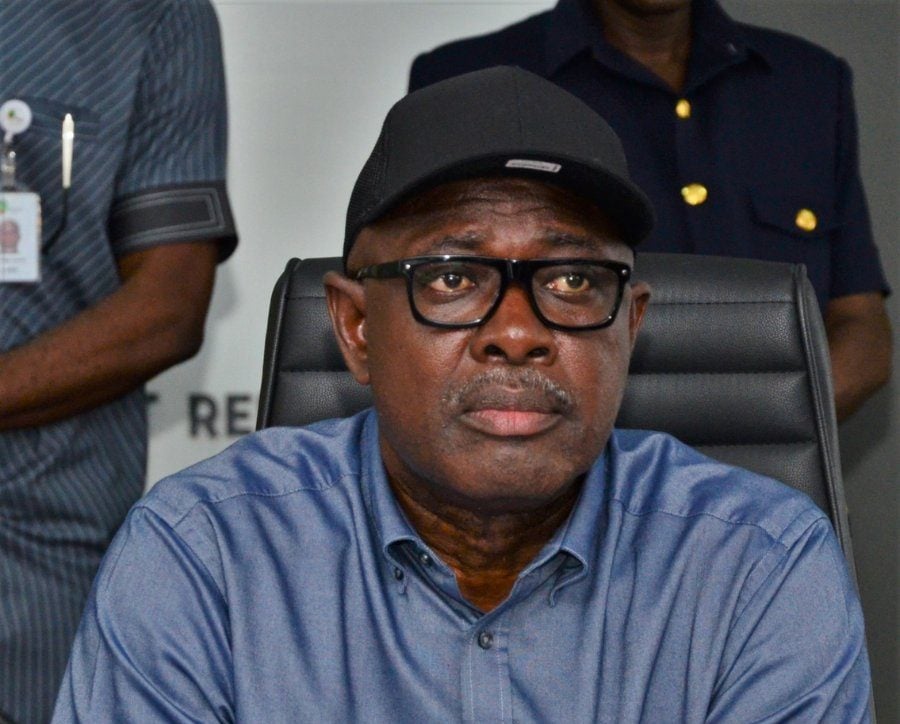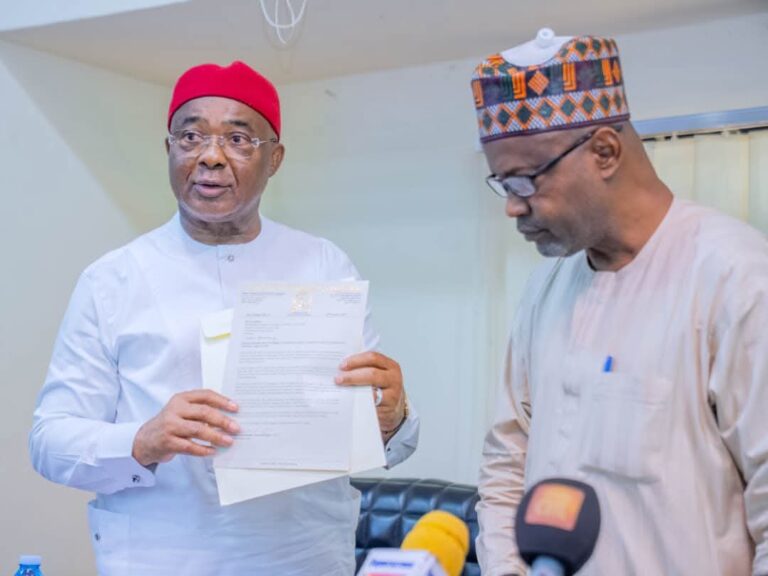
The Minister of State for Petroleum Resources (Oil), Senator Heineken Lokpobiri, has said Nigeria will demand a higher oil production quota at the next meeting of the Organisation of Petroleum Exporting Countries scheduled for November.
Lokpobiri disclosed this on Tuesday in Abuja during an interview with the media team of the Nigerian Upstream Petroleum Regulatory Commission, where he reviewed Nigeria’s upstream oil performance four years after the enactment of the Petroleum Industry Act and the establishment of the Commission.
He said the country’s current quota, pegged at about 1.5 million barrels per day, no longer reflects its true production capacity.
According to him, the upcoming OPEC meeting provides an opportunity for Nigeria to make a strong case for an upward review to at least two million barrels per day.
“The OPEC quota is subject to periodic review, and by November, when we attend the annual meeting, we will certainly be making a case for a higher quota for Nigeria. And I believe that there’s no better time than now for us to make a strong case for Nigeria’s quota to be reviewed to two million and above,” the minister said.
He expressed confidence that Nigeria’s improved output levels, strengthened infrastructure, and renewed investments in the upstream sector would support the country’s case for an increase.
Lokpobiri said the sustained recovery in production, improved regulatory environment, and fresh inflow of investment into the oil and gas sector have positioned Nigeria to make a strong case for a higher OPEC quota.
“When I became minister, the OPEC quota for Nigeria was 1.5 million barrels per day because our production then was below that.
“Today, we are producing around 1.7 million barrels daily, including condensates, and we have the capacity to produce above two million barrels per day. It is time to review the quota upward,” he noted.
He explained that Nigeria’s actual output includes condensates, a lighter, higher-value form of crude not covered by OPEC’s production limits, adding that this gives the country flexibility without violating its quota.
“Condensate is not counted in OPEC production, yet it sells at a higher price,” he said. “If we do 1.5 million barrels of crude and one million barrels of condensate, we are still within the rules. And because we have capacity, we are also going to show that we have capacity. Right now, there is something going on to assess our capacity, and that assessment is currently going on. And we believe that we will show the world that we have the capacity to produce more than two million barrels.”
The minister added that verifiable production data, domestic crude supply obligations under the PIA, and evidence of renewed capacity would form part of Nigeria’s case at the OPEC meeting.
Lokpobiri attributed the production rebound to improved security and better pipeline integrity across the Niger Delta.
“Before now, companies were scared to produce because crude pumped into pipelines hardly got to the terminal,” he said. “Today, if you put in crude, you get 100 per cent at the export point.”
He said years of pipeline vandalism and oil theft had crippled Nigeria’s production capacity, but recent interventions by security agencies and community partnerships had reversed the trend.
According to him, Nigeria’s rig count, a key indicator of upstream activity, has jumped from about 14 to nearly 50 and is expected to rise further by year-end.
Lokpobiri also hailed the recent wave of divestments by oil majors such as Shell, TotalEnergies, and ExxonMobil, saying they had opened opportunities for capable Nigerian operators.
“Our indigenous producers are doing excellently,” he said. “Renaissance has increased production by over 60,000 barrels a day since taking over Shell’s assets, while Seplat has added around 40,000 barrels from the ExxonMobil portfolio.”
The minister noted that local operators were now playing a central role in sustaining national output and deepening value creation within the country.
He praised the NUPRC, led by its Chief Executive, Engr. Gbenga Komolafe, for restoring investor confidence through consistent enforcement of the PIA and improved transparency in the upstream sector.
“The PIA brought stability to the regulatory framework, and NUPRC has been doing an excellent job. It has become a reference point for many countries coming to learn how Nigeria regulates its upstream sector,” Lokpobiri said.
He said the establishment of the African Petroleum Regulatory Forum, under NUPRC’s coordination, was proof of Nigeria’s growing influence in regional energy governance.
“The forum aims to unify Africa’s voice in global energy policy and advocate equitable investment and energy access,” he explained.
Speaking further, the minister credited President Bola Tinubu’s executive orders with helping to reduce production costs and make Nigeria’s oil sector more competitive globally.
He expressed optimism that the country’s goal of achieving 2.06 million barrels per day by 2025 was within reach, citing improved infrastructure, new investments, and policy stability.
“When I took office, production was around one million barrels a day. Today, it’s between 1.7 and 1.8 million barrels. That’s progress, but we’re not stopping there.
“Our cost of production is higher than the global average, but we’re also bringing it down. The cost of production is bound to be high depending on the circumstances. But today, we have taken steps to ensure that the cost of production is made competitive, and the executive orders have been very helpful in ensuring that we take certain steps that will reduce the cost of per-barrel production.
Saudi Arabia is getting about eight dollars per barrel. I mean, some of the things that they do there are not available here.
“Circumstances here are different. But we definitely will get there. The global average is perhaps $12, but ours is way above that. But that doesn’t mean that we are not taking steps. So, having identified the problem, we are taking steps to ensure that we address that problem,” he affirmed.
On the continental front, Lokpobiri stressed that oil and gas would continue to play a dominant role in the global energy mix for decades, insisting that Africa must chart its own path in the energy transition debate.
“Africa contributes less than three per cent of global emissions. We cannot industrialise without reliable power. Energy transition means different things to different regions. For us, it means first ensuring energy access before talking about transition.
“Right now, our first objective is to use the hydrocarbon resources we have in abundance in Africa, raise the funding we need, and then finance the energy mix. We have abundant potential for solar, hydro, and wind, and we have it all. But those technologies are all manufactured in Europe. They want you to abandon so that they can continue to. And like I said in Ghana, we can’t borrow to finance our energy requirements.
“We have to use the resources we have to raise what we need to finance our energy mix. So, it is the best time for AFRIPERF so they can join others in advocacy for Africa to be given special preference as it relates to this issue of energy transition. In any event, what they are doing is hypocrisy. They themselves are ramping up production. The US produces over 20 million barrels a day. So why should we stop? The minister queried.
OURCE: PUNCH NEWS PAPER





